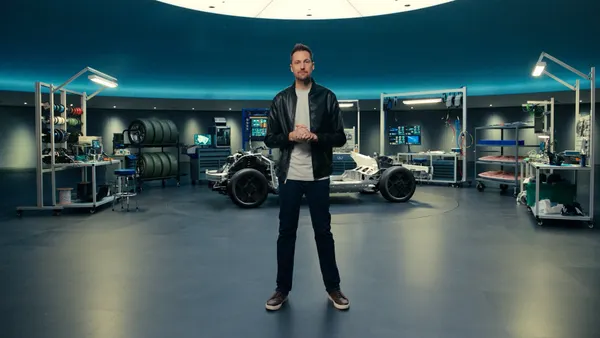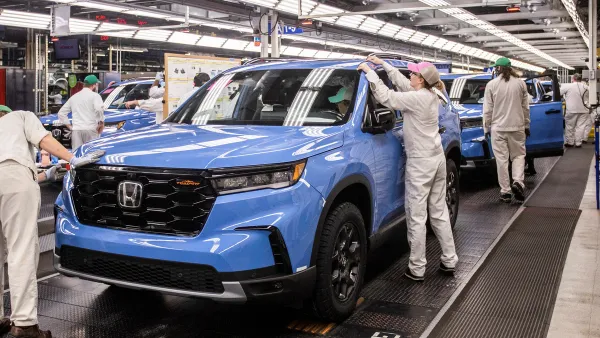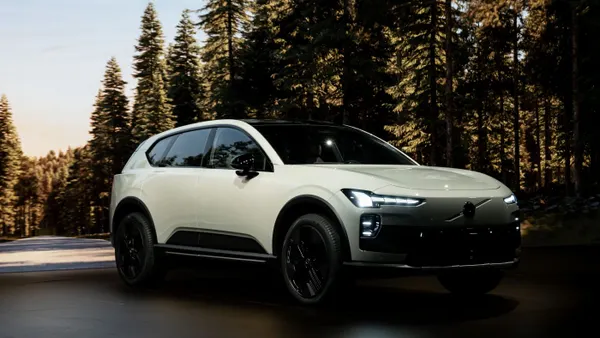Editor's note: This story is part of the WardsAuto digital archive, which may include content that was first published in print, or in different web layouts.
For Jack Hollis, executive vice president of sales at Toyota Motor North America, the company’s short-term actions reflect long-term plans.
Whether discussing dealers selling cars above sticker price, Toyota's approach to introducing electric vehicles or his commitment to dealership models, he continually returns to the automaker's long-term vision during a question-and-answer webinar produced by the Detroit-based Automotive Press Assn.
Arguably the most contentious exchange comes after Hollis comments that only a handful of Toyota dealers list popular models over MSRP. He says they did so due to overt enthusiasm, and all halted the practice after discussions with him.
An audience member responds by claiming there are "a bunch of Toyota dealers charging as much as $8,000 over sticker for products like the Tundra, and there's a dealer in Maryland getting $25,000 over sticker for a Tundra TRD Pro.”
"Listen, I'm not saying it's not there. I'm saying it's rare when you see it happen," Hollis says. "It's a fundamental issue of supply and demand. "When you have about a 36-hour supply of vehicles, you're going to have a lot of pressure on the economic model to change. Our goal is to think long-term. And I tell each dealer, 'Are you thinking long term?'"
Another long-term issue Toyota is discussing is the adoption of EVs. The automaker is committed to a full battery-electric future but won't rush to achieve it.
"I would be cautious where we're going," he says. "We'll be ready when the market is ready. The consumer is not calling for the adoption of EVs at the level of the (industry's) rhetoric. It's always come down to what the customer is needing."
Other points made by Hollis:
- Automakers such as General Motors and Ford have mostly exited the passenger car market in favor of crossovers and SUVs. Toyota will stay with sedans, and Hollis believes some competitors will return.
- He notes U.S. automotive emissions only make up about 12% of "the carbon issues" globally. The U.S. can be leaders in that arena.
- More time needs to be spent analyzing how big rigs are powered. Hydrogen fuel cells may be the answer for trucks carrying heavy freight. However, due to a lack of infrastructure, hydrogen cannot be a solution for the consumer vehicle market.
- Although he praises Tesla and other automakers for their commitments to alternative fuels, he doesn't think Toyota's slower approach will make the automaker an also-ran. He says much of the EV innovation moves ahead because automakers stress perceived consumer demand. "Well, is that true? Or have (consumers had to be) incentivized to get it? Are they being pushed into something they don't want?" he asks. "And in my experience in 31 years in this industry, when the government and others start telling consumers what they must have, the consumers start pushing. Are we watching (other automakers)? Of course. But ultimately, we watch the consumer."









